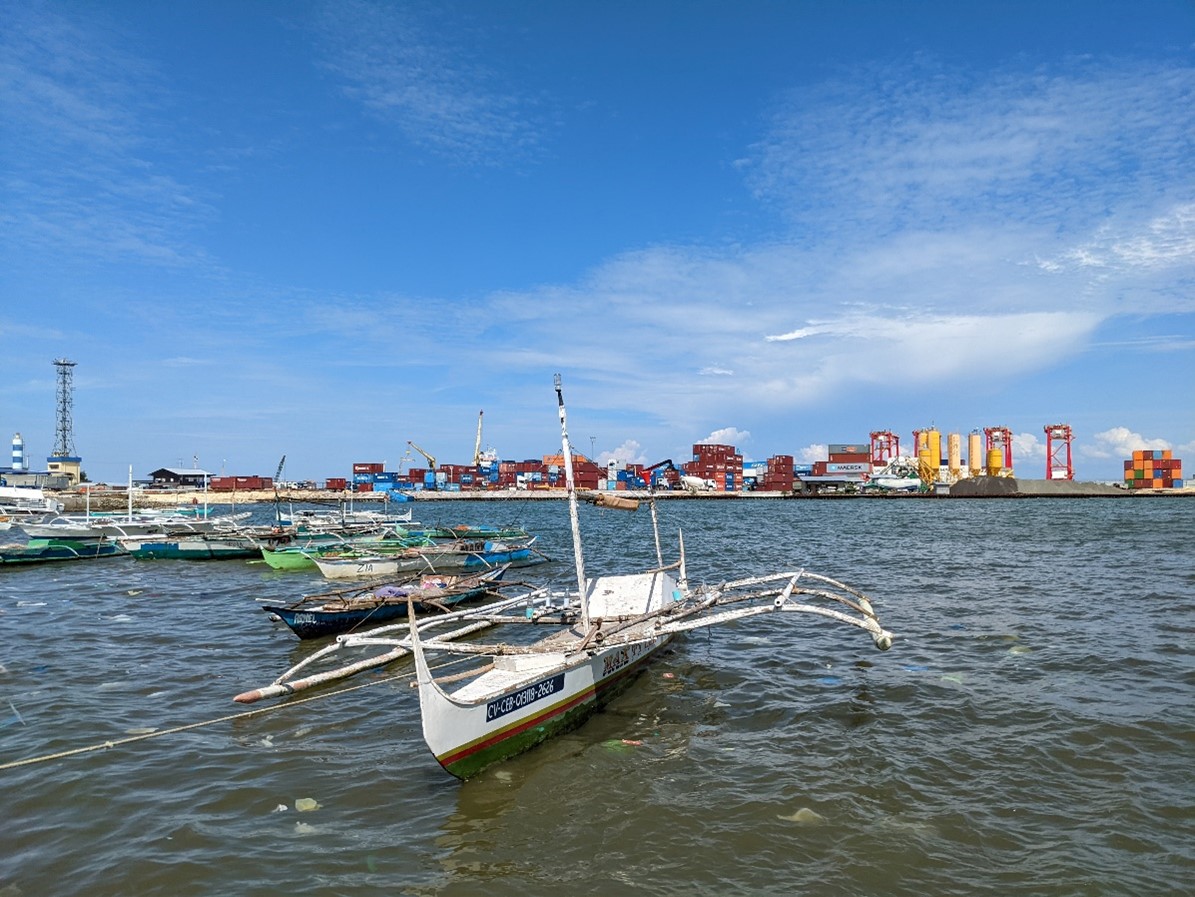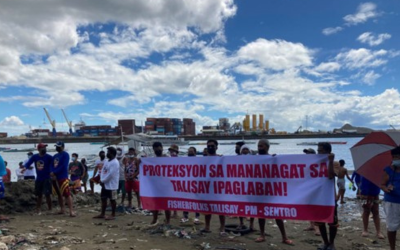Workers in the Philippines are on the frontlines of climate crisis, facing rising temperatures, regular climate disasters and impacts on food production. SENTRO are educating and organising workers to fight for climate justice in their workplaces and communities.
Climate crisis in the Philippines
Last year the Philippines was rated the number one country at risk of natural disasters by the World Risk Report. Climate change is leading to increased frequency and severity of disasters including typhoons, heavy rains, landslides, floods, droughts and fires. Studies by the Asian Development Bank suggest the Philippines faces losing 6% of its annual gross domestic product due to climate change over the next 80 years.
Changes in sea water temperature, air temperature and rainfall patterns create significant food security risks with declining rice yields and fish catches. A United Nations study projects that labour productivity will decline due to extreme heat by 2% in the next 30 years, and 4% by 2085. Costs of food, fuel and energy are on an inflation spiral in the Philippines with an inflation rate of 8% in March 2023, while wages are failing to keep up.
The Philippines is not a big emitter of greenhouse gases, contributing only 0.4% of global emissions; however, it bears the brunt of the climate crisis disproportionately. The poorest communities are worst impacted, being more likely to be exposed to the risks of climate change and also less able to cover the costs of mitigation and recovery from climate disasters.
Among low and middle-income countries, the Philippines ranks in the top 25% of carbon emitters with 54% of emissions coming from the energy sector.
Advancing the campaign for Climate Justice
As part of a regional project in partnership with the Trade Union Solidarity Center of Finland (SASK), Union Aid Abroad-APHEDA is working with union partner organisations in the Philippines, Indonesia and Nepal to advance the campaign for climate justice with workers.
In the Philippines, SENTRO, a national trade union centre, are implementing this project in Cebu. They are working in partnership with workers in the garment sector, fishing sector and informal workers to increase their understanding of the climate crisis and how it impacts on their work.
Wins for fisherfolk
The project has provided training and support for climate leadership formation among the leaders of MATAPA, a fisherfolk affiliate in Talisay. The fisherfolk have identified that warming sea temperatures and coastal development are impacting the availability of fish in their fishing grounds, posing a long-term challenge to their livelihood.
In 2022, they faced an immediate threat with a proposed expansion of the Cebu international container port into the docking area used by fisherfolk. The expansion would have prevented 500 fisherfolk from accessing their long-term docking port, and it also threatened to demolish the homes of some of the fisherfolk who live in an insecure settlement on the coast.
MATAPA built a coalition of fisherfolk and campaigned with the local government. They were successful in forcing the Cebu Port Authority to negotiate with them, and the campaign resulted in being granted a secured docking area protected from the expansion. They also achieved land tenure for some of the residents who now have official title over the land they live on.
Assessing the impact of LNG
SENTRO’s work on climate justice issues for union delegates and members in Cebu city led to the identification of a potential threat to work, health, and the environment. A proposal has been lodged for the installation of a Liquified Natural Gas plant in an urban area. The plant would likely displace the homes and workplaces of informal workers, storage and waste management processes may pose immediate health risks, and the increase in natural gas would contribute to climate emissions. The project is currently undertaking research into the proposed plant, and similar developments, to inform a workers’ advocacy campaign against the proposal.

